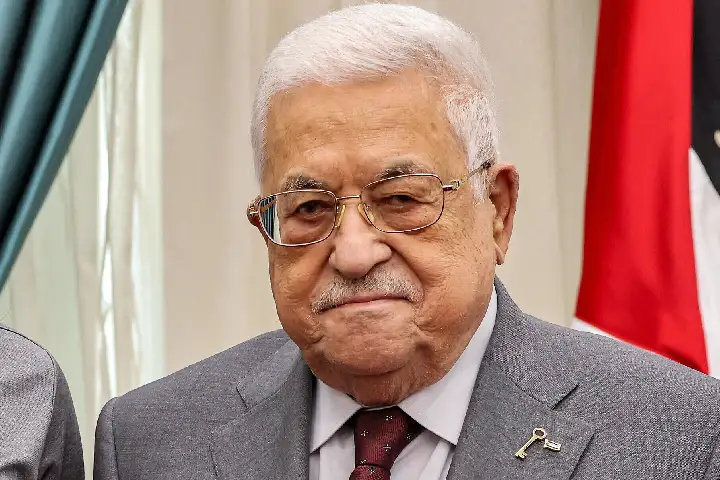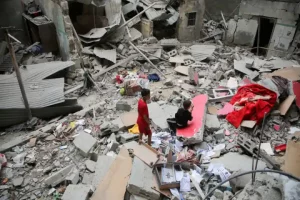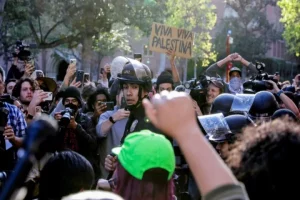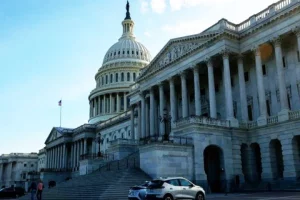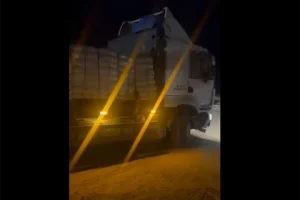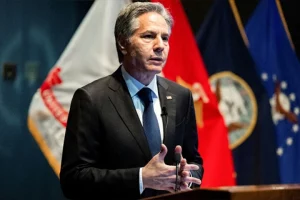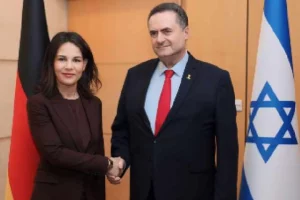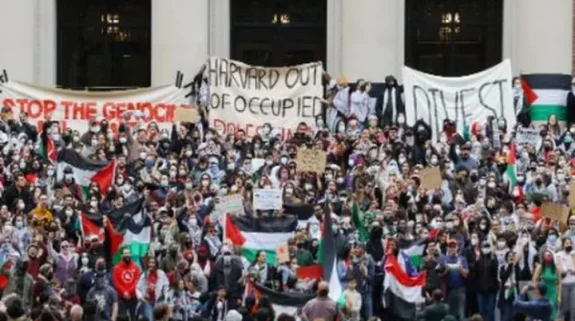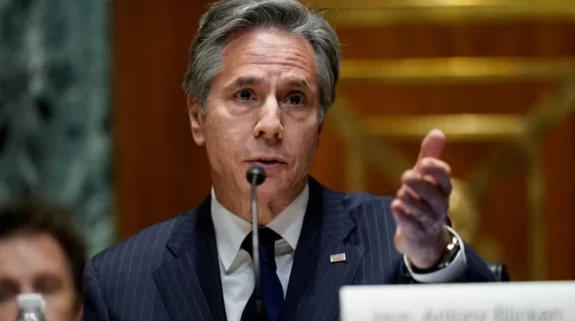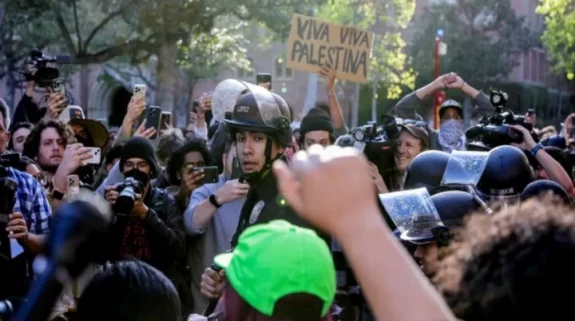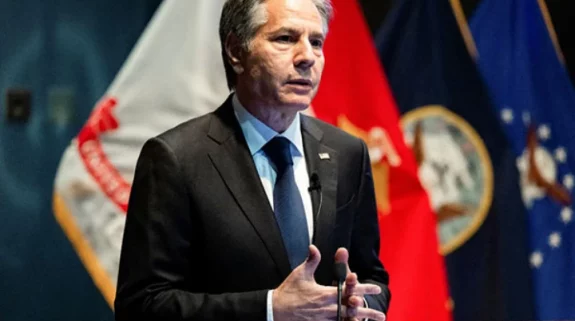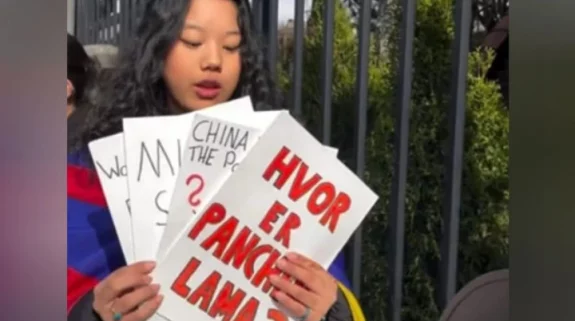The left-leaning Israeli newspaper Haaretz on Tuesday published a report highlighting that the European Union is ready with the post-Hamas set-up plan for Gaza once the Israeli military operations come to a halt and peace descends in the coastal strip. Gaza has been a stronghold of Hamas, which through its political arm Change and Reform Party, had come to power there by defeating the then unchallenged Fatah that controls the Palestinian Authority led by Mahmoud Abbas.
The Haaretz quoted EU president Ursula von der Leyen saying that five principles have been laid down for the post-Hamas roadmap.
“The President of the European Commission Ursula von der Leyen’s says path toward the day after the Israel-Hamas war may include an ‘international peace force under UN mandate’ and calls for immediate release of all hostages held in the Gaza Strip.” https://t.co/0i7F9msEu7
— David Soiza (@SoizaDavid) November 7, 2023
The first principle presented by the top EU official is that Gaza “can be no safe haven for militants.” She stated: “We know what happened after the previous Gaza wars. Hamas immediately started rebuilding its arsenal and preparing for the next conflict. This cannot be the case any longer.”
“Different ideas are being discussed on how this can be ensured,” she added, “including an international peace force under UN mandate.”
Secondly, “the militant organisation Hamas cannot control or govern Gaza. There should be only one Palestinian Authority, and one Palestinian State.” Von der Leyen added that there should not be a long-term Israeli security presence in Gaza. “Gaza is an essential part of any future Palestinian State,” the former German defense minister said.
Another principle is that there should be no forced removal of Palestinians from Gaza, as it would only be a recipe for more regional instability, von der Leyen said.
Von der Leyen remarked in her fifth point that there should not be a sustained blockade of Gaza. “Hamas has continued to build up its arsenal, while the economy of Gaza has collapsed, so it is just the opposite of what we want,” she said.
Von der Leyen announced the allocation of an additional €25 million in humanitarian aid to Gaza, bringing the total assistance to Gaza’s residents to €100 million. This fund is largely earmarked for post-Hamas Gaza rehabilitation.
EU President’s principles were last week echoed by former Israeli Prime Minister and Labor Party leader Ehud Barak, who in an online session moderated by Foreign Policy magazine online and attended by this correspondent said that there is a consensus between US and Israel that the current IDF operation will be completed with total ouster of Hamas from Gaza. “However, it will not mean that Palestinians will cease to exist in Gaza. They in fact will be supported by immediate aid to rebuild their lives. The Palestinian Authority will be given reins of Gaza administration which will be backed by joint Israeli-US security forces. The additional security forces being dispatched from the US are specifically with this purpose,” said Barak.
On FP Live, host @RaviReports asked Ehud Barak, Israel’s former prime minister, why Israel can’t fight Hamas without killing so many innocent Palestinian civilians. Watch the full interview on-demand or read the Q&A here: https://t.co/aDy4SNmPke pic.twitter.com/wVvkfYXKm1
— Foreign Policy (@ForeignPolicy) November 2, 2023
EU president’s and Barak’s confident utterances in the midst of ongoing conflict and shuttle diplomacy by US Secretary of State Antony Blinken for “humanitarian pauses” in the Israel-Hamas war are at variance principally. Yet, they provide glimpses of most possible outcomes of the conflict.
If Von der Leyen and Barak are to be believed, no diplomacy will work until Israel-US-EU will achieve their objectives in Gaza.
Professor A.K. Mohapatra of the Centre for West Asian Studies, JNU, told India Narrative that the Israel-US seems to have set three objectives. “First is the transfer of Palestinian population from the Gaza Strip to the Sinai Peninsula. Second is propping up a post-Hamas regime or any governing authority in Gaza. Third will be bringing back Palestinian Authority as chief administrator of Gaza. Any of this may be tried. Meanwhile, the security apparatus will totally be in control of Israel and the US,” he said.
He also highlighted that any alternative post-Hamas regime sans PA or with PA will be in consonance with Arabian states’ cooperation. “Secretary Blinken making a tour to the region, especially various Arab capitals, was likely aimed at building such a consensus among Arab states,” he said.
Prof Mohapatra said that one option, as also found in EU president’s five principles, is that Gaza will be ruled and managed on the lines of post-war Kosovo where UN troops provided the security umbrella and a UN administration had come into being to run the country.
Post-Hamas in Gaza
Though established in 1987, Hamas became the principal Palestinian force when it came to power in properly conducted and internationally-monitored elections. However, its victory was not recognised by Israel and leading world powers. In 2007, it engaged in a bloody power feud with Fatah and after more than 50 casualties, the group gripped Gaza with an iron fist. Since then all big scale conflicts with Israeli forces – 2008, 2012, 2014, 2021 and present one – have been Israel versus Hamas wars.
Nathan Brown points out in his examination of Gaza’s potential future for the Carnegie Endowment for Peace, “Hamas is not particularly popular – it has some enthusiastic support, to be sure, but only from a minority. But asking Gazans whom they support is partly beside the point: no Palestinian has had a serious voice in choosing their leaders since 2006. A bizarre coincidence of interests among a variety of international and domestic actors has formed to prevent meaningful elections.”
He says the PA in any case would need Israel first to reverse its “longstanding policy to disconnect Gaza from the West Bank and to treat Gaza as a nonentity in political and governing terms”, which he sees as unlikely.
Even if it were possible, the PA would still have to deal with its lack of popularity. Plus, it will have to develop the capacity that it sadly doesn’t have at present to run Gaza, else another crisis will take birth before one is over.
PA chief Mahmoud Abbas has said that PA would return to Gaza if a “political solution” demands so. But, he would not surely want to ride into Gaza on an Israeli tank.
Mahmoud Abbas’ Palestinian Authority doesn’t even have security control over the West Bank – Israel goes in and wrecks the place whenever it chooses.
Now the Americans want us to believe Israel will sit back and let Abbas run the hellhole that’s Gaza.
They think we’re idiots
— Jonathan Cook (@Jonathan_K_Cook) November 6, 2023






